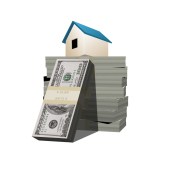
Tapping into home equity by refinancing is more of a possibility today and becoming very popular for many borrowers.
As interest rates have moved lower in the last 3 weeks and housing values across the country continue to steadily increase, homeowners now have access to a much larger source of equity and possibly better payment terms!
With current mortgage rates low and home equity on the rise, many think it’s a perfect time to refinance your mortgage to save not only on your overall monthly payments, but your overall interest costs as well.

It’s really about managing the overall assets that you have in order to maximize the returns. Make sure you are working with the right mortgage lender to help in figuring out which product is best.
What is a Cash-Out Refinance?
A mortgage refinance happens when the homeowner gets a new loan to replace the current mortgage. A cash-out refinance happens when the borrower refinances for more than the amount owed on their existing home loan. The borrower takes the difference in cash.
Rates Are Down and Home Equity is Up
Since rising home values are returning lost equity to many homeowners, refinancing can make a good deal of sense with even a small difference in your interest rate. Homeowners now have options to do many things with the difference.
More home equity also means you won’t need to bring cash to the table to refinance. Furthermore, interest rates can be slightly lower when your loan-to-value ratio drops below 80 percent.
Here’s what many of my customers are doing with that equity:
- Consolidate higher interest debt
- Eliminate mortgage insurance
- Purchase a 2nd Home or Investment Property (or a combination of both)
- Home Improvement – upgrades to kitchen, roof, or pool
Benefits of Cash-out Refinances
Free Up Cash – A cash-out refinance is a way to access money you already have in your home to pay off big bills such as college tuition, medical expenses, new business funding or home improvements. It often comes at a more attractive interest rate than those on unsecured personal loans, student loans or credit cards.

Improve your debt profile – Using a refinance to reduce or consolidate credit card debt is also a great reason for a cash-out refinance. We can look at the weighted average interest rate on a borrower’s credit cards and other liabilities to determine whether moving the debt to a mortgage will get them a lower rate. Some borrowers are saving thousands per month by consolidating their debt through their mortgage.
More stable rate – Many borrowers choose to do a cash-out refinance for home improvement projects because they want a steady interest rate instead of an adjustable rate that comes with home equity lines of credit, or HELOCs.
2nd Home or Investment Property – many borrowers are utilizing the value of the cash in their home to purchase rental properties that cash flow better then the monthly payments of the new loan.
Tax deductions – Unlike credit card interest, mortgage interest payments are tax deductible. That means a cash-out refinance could reduce your taxable income and land you a bigger tax refund.
Reasons NOT to Refinance
Terms and costs – While you may get a lower interest rate than your current mortgage, your cash-out refinance rate will be higher than a regular rate-and-term refinance at market rate. Even if your credit score is 800, you will pay a little bit more, usually an eighth of a percentage point higher, than a purchase mortgage. Generally, closing costs are added to the balance of the new loan, as well.

Paperwork headache – Borrowers need to gather many of the same documents they did when they first got their home loan. Lenders will generally require the past 2 years of tax returns, past 2 years of W-2 forms, 30 days’ worth of pay stubs, and possibly more, depending on your situation.
Enabling bad habits – If you’re doing a cash-out refinance to pay off credit card debt, you’re freeing up your credit limit. Avoid falling back into bad habits and running up your cards again.
The Bottom Line
A cash-out refinance can make sense if you can get a good interest rate on the new loan and have a good use for the money.
Using the money to purchase a rental property, fund a home renovation or consolidate debt can rebuild the equity you’re taking out or help you get in a better financial position.
With that said, seeking a refinance to fund vacations or a new car might not be that great of an idea, because you’ll have little to no return on your money.
It would be my pleasure to see if this type of plan might be a good one for you.





























